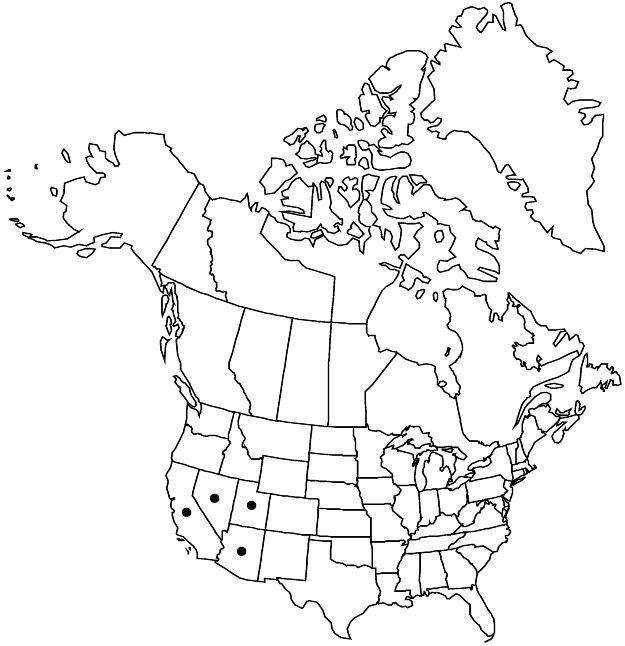Ivesia arizonica
Syst. Bot. 14: 233. 1989.
Plants green, ± tufted, often forming hanging clumps, sometimes rosetted. Stems pendent or prostrate to ascending, (0.2–)0.5–1.6(–3) dm. Basal leaves planar, 2–15(–20) cm; sheathing base usually not strigose abaxially; petiole 3–10 cm; lateral leaflets (2–)3–4(–5) per side, separate, broadly ovate or obovate to orbiculate, (2–)5–15(–18) mm, incised 1/4–3/4 to base into (3–)7–11 ± ovate teeth, apex not setose, surfaces ± sparsely short-pilose, ± glandular; terminal leaflets ± distinct. Cauline leaves 1–3; blade well developed. Inflorescences (1–)5–30(–150)-flowered, open, 0.5–14 cm diam. Pedicels 5–30 mm. Flowers 6–12 mm diam.; epicalyx bractlets 0(–3), lanceolate, 0.9–1.8 mm; hypanthium turbinate or campanulate, 1.5–3(–5) × 1–3(–4) mm; sepals 2–4(–5) mm, acute; petals yellow or white, oblanceolate to elliptic or obovate, (1.6–)2–4 mm; stamens 5, filaments 0.8–1.3 mm, anthers ± yellow, oblong to narrowly ovate, 0.6–1.5 mm; carpels (2–)6–10(–13), atop a stipelike torus, styles 0.9–1.8 mm. Achenes greenish white to light tan, 1.2–2 mm, faintly rugose, ± carunculate.
Distribution

sw United States.
Discussion
Varieties 2 (2 in the flora).
Because the epithet saxosa was retained for Potentilla saxosa upon transfer to Ivesia, a different epithet (arizonica) was needed when Purpusia was likewise transferred in the same publication (B. Ertter 1989). The correct name for this species in Potentilla is P. osterhoutii (A. Nelson) J. T. Howell, due to the existence of P. arizonica.
Selected References
None.
Key
| 1 | Petals yellow; hypanthia campanulate. | Ivesia arizonica var. arizonica |
| 1 | Petals white; hypanthia turbinate. | Ivesia arizonica var. saxosa |